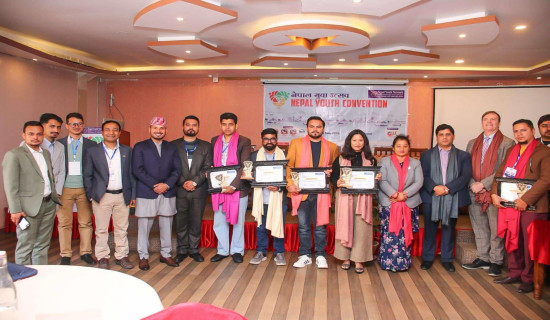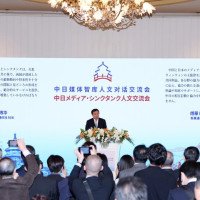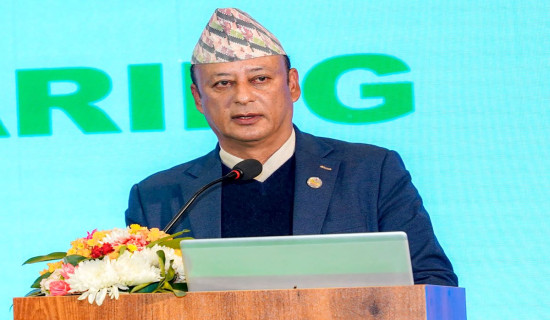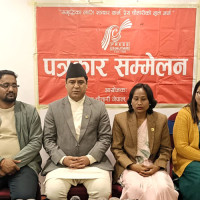- Friday, 21 February 2025
Democracy Day Special
Crisis Of Legitimacy And Performance
The global democratic trend has taken a troubling turn in recent years. International organizations that monitor status of democracy have noted the world has witnessed a steady decline in democratic governance. Freedom House reported in 2023 that global freedom declined for the 18th consecutive year. The net democratic growth is negative, with more countries experiencing democratic erosion rather than consolidation. The rise of authoritarianism is evident in various regions. Even countries that once seemed firmly democratic have seen their democratic institutions weaken due to the rise of ethno-nationalism.
Liberal democracy is characterized not only by procedures such as elections but also by promises to protect civil liberties, minority rights, and an independent judiciary. Illiberal democracies, on the other hand, don a democratic facade while undermining these fundamental freedoms. Leaders like Viktor Orbán of Hungary and Recep Tayyip Erdoğan of Turkey have skillfully used democratic elections to consolidate personal power while restricting press freedom, judicial independence, and civil rights.
Democracy, at its core, is built upon several fundamental principles: protection of civil rights and liberties, accountability, transparency, rule of law, and respect for dissent. When these principles are upheld, democracy serves as a vehicle for national progress by fostering economic development, ensuring social justice, and protecting individual freedom. However, in many countries, democracy is increasingly viewed as an inefficient or failing system, particularly when governments struggle with economic crises, corruption, or social instability.
One of the most alarming trends in contemporary democracies is the rise of far-right populism, even in advanced democracies. France’s National Rally, Germany’s Alternative for Germany (AfD), and Italy’s Brothers of Italy have gained popularity by exploiting nationalist, anti-immigrant, and anti-globalist sentiments. Similarly, in the US, Donald Trump, who trashed most democratic norms, exploited his populist agenda to win second presidency.
One major cause of democratic deficiency is economic inequality that generates social discontent. When large sections of the population feel left behind by economic policies, they lose belief in democracy’s ability to deliver. This is evident in the US, where the decline of manufacturing jobs and growing wage disparities have fueled support for Trump. Similarly, in France, economic pessimism has contributed to the rise of far-right figures like Marine Le Pen. When democratic governments fail to address economic hardships, people become more receptive to authoritarian promises of stability and prosperity.
Another major factor is disinformation and political polarisation. The digital age has made it easier for political actors to spread false narratives, manipulate public opinion, and undermine trust in democratic institutions. Social media platforms have amplified conspiracy theories, deepening divisions within societies. In Brazil, former President Jair Bolsonaro repeatedly questioned the legitimacy of democratic institutions, spreading false claims about election fraud. In the US, disinformation surrounding the 2020 election led to the January 6 Capitol riot, highlighting how false information circulated in the virtual world can translate into real-world threats to democracy.
Weak institutions and corruption also play a significant role in democratic erosion. When political leaders manipulate legal frameworks to serve their own interests, it weakens public confidence in democratic governance. In Hungary, PM Orbán has systematically dismantled judicial independence and concentrated power within his party, wrecking democratic checks and balances. In South Africa, the legacy of state capture during Jacob Zuma’s presidency severely damaged trust in government institutions. Corruption erodes accountability, making it easier for authoritarian leaders to justify power grabs under the guise of efficiency.
National/Cultural identity crises amplified by nationalist narratives become a potent force against liberal democracy. Rapid cultural and demographic changes, driven by migration and global economic shifts, have fueled nationalist movements across Europe and North America. Many citizens feel that their identity is being threatened, leading to the rise of leaders who promise to restore traditional values. In India, the Bharatiya Janata Party (BJP) under Prime Minister Narendra Modi has capitalized on Hindu nationalist sentiments, marginalizing religious minorities while consolidating political power. Similarly, in the United Kingdom Brexit was largely driven by concerns over national sovereignty and immigration, reflecting how globalization has contributed to democratic instability. Trump promised to mass evict undocumented immigrants who, he thinks, pose threat to national security.
One of the most immediate consequences of democratic deficiency is the erosion of government legitimacy. When citizens perceive their leaders as corrupt, incompetent, or unresponsive, they become disillusioned with the democratic process. This has led to declining voter turnout and increasing support for anti-establishment parties across the world. In Italy, voter frustration with mainstream parties contributed to the electoral success of Giorgia Meloni’s far-right government. Similarly, in Latin America, countries like Chile and Colombia have seen rising distrust in democratic institutions, leading to political volatility.
Another consequence is political instability and rising authoritarianism. As democratic institutions weaken, leaders often resort to more repressive measures to maintain control. In Turkey, President Erdoğan has used emergency laws and media crackdowns to silence opposition voices. In the Philippines, former President Rodrigo Duterte waged a brutal war on drugs that bypassed legal norms, justifying it as a necessary response to crime. When democracy becomes ineffective, strongman leaders exploit crises to justify authoritarian policies.
Democratic deficiency also exacerbates social unrest and polarisation. When democratic governments fail to address inequality and grievances, protests and civil disobedience become more frequent. The Yellow Vest protests in France, the pro-democracy demonstrations in Hong Kong, and the Black Lives Matter movement in the US all highlight the consequences of government failures to address deep-rooted social and economic disparities. In extreme cases, political divisions can escalate into violence, as seen in the US Capitol riot or Myanmar’s military coup, where democratic backsliding led to open conflict.
A weakened democracy creates opportunities for foreign influence and geopolitical instability. Nondemocratic powers have actively promoted their governance models as alternatives to liberal democracy, influencing elections and spreading disinformation to undermine democratic norms. When democracies fail to function effectively, they not only risk internal collapse but also enable the spread of autocratic influence worldwide. If these trends continue unchecked, the world may see a return to a period where authoritarian rule becomes the norm rather than the exception.
The current democratic backslide is not inevitable, but reversing it requires urgent action. Strengthening democratic institutions, restoring public trust in governance, and addressing economic and social grievances are essential. Civil society, media, and international organizations must play a proactive role in holding governments accountable and promoting democratic values. The future of democracy depends on our collective will to protect and strengthen it.
(A PhD in political science from State University of New York, Buffalo, the author is faculty at IACER. gov-inda@iacer.edu.np)

















